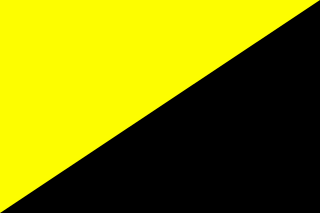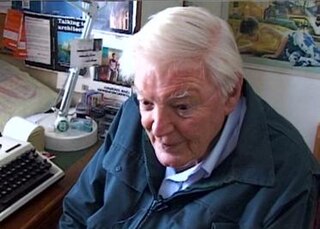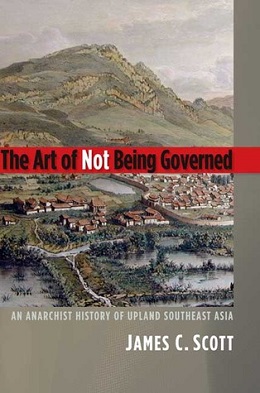This is a list of societies that have been described as examples of stateless societies .
There is no universally accepted definition of what constitutes a state, [1] or to what extent a stateless group must be independent of the de jure or de facto control of states so as to be considered a society by itself.
The following groups have been cited as examples of stateless societies by some commentators.
| Society | Period | Notes | Ref. |
|---|---|---|---|
| Essenes | 2nd century BCE – 1st century CE | Mystic Jewish sect with communal living practices. | [2] |
| Icelandic Commonwealth | 930–1262 | Society in Iceland established by Norse and Catholic people. | [3] [4] |
| Frisian freedom | 800–1523 | Territory notably not run under the feudal practices normal in Europe at the time. | [5] |
| Taborites | 1420–1452 | Hussite faction which maintained an independent Tábor. Arguably a prototypical anarcho-communist society. | [6] |
| Republic of Cospaia | 1440–1826 | Microstate created by historical anomaly, independent of bordering major powers. This territory lacked many state-like apparatuses. | [7] |
| South Carolina Commune | 1868–1874 | Black-led reconstruction government in South Carolina. Considered a commune by W. E. B. Du Bois. | [8] |
Human society predates the existence of states, meaning that the history of almost any ethnic group would include pre-state organisation. The groups listed below have been identified as examples of stateless societies by various commentators, including discussions relating to anarchism.
Anarchism is a political philosophy and movement that is skeptical of all justifications for authority and seeks to abolish the institutions it claims maintain unnecessary coercion and hierarchy, typically including nation-states, and capitalism. Anarchism advocates for the replacement of the state with stateless societies and voluntary free associations. As a historically left-wing movement, this reading of anarchism is placed on the farthest left of the political spectrum, usually described as the libertarian wing of the socialist movement.

Anarcho-capitalism is an anti-statist, libertarian political philosophy and economic theory that seeks to abolish centralized states in favor of stateless societies with systems of private property enforced by private agencies, based on concepts such as the non-aggression principle, free markets and self-ownership. Anarcho-capitalist philosophy extends the concept of ownership to include control of private property as part of the self, and, in some cases, control of other people as private property. In the absence of statute, anarcho-capitalists hold that society tends to contractually self-regulate and civilize through participation in the free market, which they describe as a voluntary society involving the voluntary exchange of goods and services. In a theoretical anarcho-capitalist society the system of private property would still exist, as it would be enforced by private defense agencies and/or insurance companies that were selected by property owners, whose ownership rights or claims would be enforced by private defence agencies and/or insurance companies. These agencies or companies would operate competitively in a market and fulfill the roles of courts and the police, similar to a state apparatus. Some anarcho-capitalist authors have argued that slavery is compatible with anarcho-capitalist ideals.
Individualist anarchism is the branch of anarchism that emphasizes the individual and their will over external determinants such as groups, society, traditions, and ideological systems. Although usually contrasted with social anarchism, both individualist and social anarchism have influenced each other. Mutualism, an economic theory sometimes considered a synthesis of communism and property, has been considered individualist anarchism and other times part of social anarchism. Many anarcho-communists regard themselves as radical individualists, seeing anarcho-communism as the best social system for the realization of individual freedom. Some anarcho-capitalists claim anarcho-capitalism is part of the individualist anarchist tradition, while others disagree and claim individualist anarchism is only part of the socialist movement and part of the libertarian socialist tradition. Economically, while European individualist anarchists are pluralists who advocate anarchism without adjectives and synthesis anarchism, ranging from anarcho-communist to mutualist economic types, most American individualist anarchists of the 19th century advocated mutualism, a libertarian socialist form of market socialism, or a free-market socialist form of classical economics. Individualist anarchists are opposed to property that violates the entitlement theory of justice, that is, gives privilege due to unjust acquisition or exchange, and thus is exploitative, seeking to "destroy the tyranny of capital, — that is, of property" by mutual credit.

Colin Ward was a British anarchist writer and editor. He has been called "one of the greatest anarchist thinkers of the past half century, and a pioneering social historian."
The nature of capitalism is criticized by left-wing anarchists, who reject hierarchy and advocate stateless societies based on non-hierarchical voluntary associations. Anarchism is generally defined as the libertarian philosophy which holds the state to be undesirable, unnecessary and harmful as well as opposing authoritarianism, illegitimate authority and hierarchical organization in the conduct of human relations. Capitalism is generally considered by scholars to be an economic system that includes private ownership of the means of production, creation of goods or services for profit or income, the accumulation of capital, competitive markets, voluntary exchange and wage labor, which have generally been opposed by most anarchists historically. Since capitalism is variously defined by sources and there is no general consensus among scholars on the definition nor on how the term should be used as a historical category, the designation is applied to a variety of historical cases, varying in time, geography, politics and culture.

Anarchism has long had an association with the arts, particularly with visual art, music and literature. This can be dated back to the start of anarchism as a named political concept, and the writings of Pierre-Joseph Proudhon on the French realist painter Gustave Courbet. In an essay on Courbet of 1857 Proudhon had set out a principle for art, which he saw in the work of Courbet, that it should show the real lives of the working classes and the injustices working people face at the hands of the bourgeoisie.

A stateless society is a society that is not governed by a state. In stateless societies, there is little concentration of authority; most positions of authority that do exist are very limited in power and are generally not permanently-held positions; and social bodies that resolve disputes through predefined rules tend to be small. Different stateless societies feature highly variable economic systems and cultural practices.
Anarchism is generally defined as the political philosophy which holds the state to be undesirable, unnecessary and harmful as well as opposing authority and hierarchical organization in the conduct of human relations. Proponents of anarchism, known as anarchists, advocate stateless societies based on non-hierarchical voluntary associations. While anarchism holds the state to be undesirable, unnecessary and harmful, opposition to the state is not its central or sole definition. Anarchism can entail opposing authority or hierarchy in the conduct of all human relations.
Prefigurative politics are the modes of organization and social relationships that strive to reflect the future society being sought by the group. According to Carl Boggs, who coined the term, the desire is to embody "within the ongoing political practice of a movement [...] those forms of social relations, decision-making, culture, and human experience that are the ultimate goal". Besides this definition, Leach also gave light to the definition of the concept stating that the term "refers to a political orientation based on the premise that the ends a social movement achieves are fundamentally shaped by the means it employs, and that movement should therefore do their best to choose means that embody or prefigure the kind of society they want to bring about". Prefigurativism is the attempt to enact prefigurative politics.
Anarchism in India first emerged within the Indian independence movement, gaining particularly notoriety for its influence on Mohandas Gandhi's theory of Sarvodaya and his practice of nonviolent resistance. Anarchism was also an influence on the revolutionary movement, inspiring the works of Har Dayal, M. P. T. Acharya and Bhagat Singh, among others.

Now and After: The ABC of Communist Anarchism is an introduction to the principles of anarchism and anarchist communism written by Alexander Berkman. First published in 1929 by Vanguard Press, Now and After has been reprinted many times, often in partial or abbreviated versions, under the titles What Is Communist Anarchism?, What Is Anarchism? or The ABC of Anarchism.
The following outline is provided as an overview of and topical guide to anarchism:
The following is a list of terms specific to anarchists. Anarchism is a political and social movement which advocates voluntary association in opposition to authoritarianism and hierarchy.
Contemporary anarchism within the history of anarchism is the period of the anarchist movement continuing from the end of World War II and into the present. Since the last third of the 20th century, anarchists have been involved in anti-globalisation, peace, squatter and student protest movements. Anarchists have participated in armed revolutions such as in those that created the Makhnovshchina and Revolutionary Catalonia, and anarchist political organizations such as the International Workers' Association and the Industrial Workers of the World have existed since the 20th century. Within contemporary anarchism, the anti-capitalism of classical anarchism has remained prominent.

Gary William Chartier is a legal scholar, philosopher, political theorist, and theologian. His work addresses anarchism and ethics. Chartier is a professor and serves as associate dean of La Sierra University's business school.
Anarchy is a form of society without rulers. It is primarily advocated by anarchists who propose replacing the state with a stateless society based on voluntary free association. These institutions or free associations are generally modeled to represent concepts such as community and economic self-reliance, interdependence, or individualism. In simple terms anarchy means 'without rulers' or 'without authority'. As such, under anarchy there is no coercive rule by a single group or individual, rather instead by an individual upon themselves or by the people entirely.

The Art of Not Being Governed: An Anarchist History of Upland Southeast Asia is a book-length anthropological and historical study of the Zomia highlands of Southeast Asia written by James C. Scott published in 2009. Zomia, as defined by Scott, includes all the lands at elevations above 300 meters stretching from the Central Highlands of Vietnam to Northeastern India. That encompasses parts of Vietnam, Cambodia, Laos, Thailand, and Myanmar, as well as four provinces of China. Zomia's 100 million residents are minority peoples "of truly bewildering ethnic and linguistic variety", he writes. Among them are the Akha, Hmong, Karen, Lahu, Mien, and Wa peoples.
Anarchism and libertarianism, as broad political ideologies with manifold historical and contemporary meanings, have contested definitions. Their adherents have a pluralistic and overlapping tradition that makes precise definition of the political ideology difficult or impossible, compounded by a lack of common features, differing priorities of subgroups, lack of academic acceptance, and contentious historical usage.
Among the stateless societies that existed on the continent were the Igbo, the Birom, Angas, Idoma, Ekoi, Nbembe, the Niger Delta peoples, the Tiv (Nigeria), the Shona (Zimbabwe), Lodogea, the Lowihi, the Bobo, the Dogon, the Konkomba, the Birifor (Burkina Faso, Niger), the Bate, the Kissi, the Dan, the Logoli, the Gagu and Kru peoples, the Mano, Bassa Grebo and Kwanko (Ivory Coast, Guinea, Togo), the Tallensi, Mamprusi, Kusaasi (Ghana), the Nuer (Southern Sudan), etc. — numbering today nearly two hundred million individuals in all.